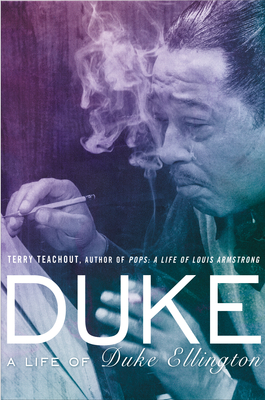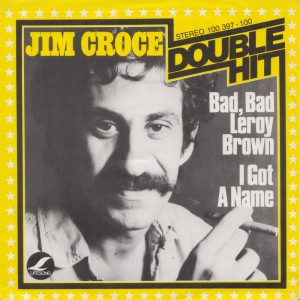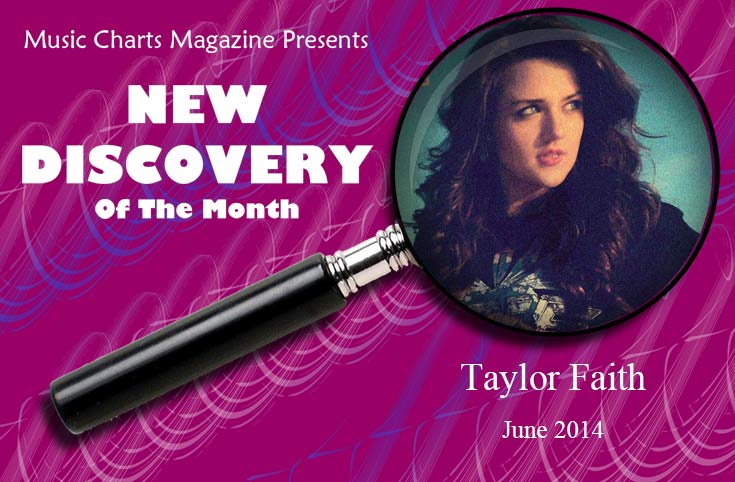Monthly Archives: June 2014
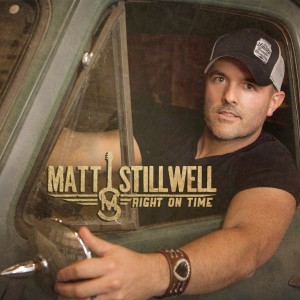 Just about every country music fan remembers Matt Stillwell for his hit single, “Shine”. But there is a lot more to this artist than one hit song. If you are one of the many fans who have lost touch with him over the past few years, it is definitely time to reconnect with this very talented vocalist and musician.
Just about every country music fan remembers Matt Stillwell for his hit single, “Shine”. But there is a lot more to this artist than one hit song. If you are one of the many fans who have lost touch with him over the past few years, it is definitely time to reconnect with this very talented vocalist and musician.
On March 11, he released his sophomore album, “Right On Time”. The album has 12 songs, five of which Matt co-wrote. Each song on the album is better than good, and several of them had me asking myself, ‘why haven’t I heard this on the radio?’
The title track, written by Matt Stillwell, Sherrie Austin and Will Rambeaux, is my favorite. “Right On Time” is a slow song, great melody, great lyrics, and basically great country music. Not the country/rock, country/pop or country/rap we’ve been hearing on the radio lately. This song will remind every country music fan why it is they fell in love with country music.
Matt’s new CD is definitely worthy of a raving review. I hope all of his fans who don’t have a copy yet will get over to iTunes and pick one up. When I first got this album, I found myself listening to “Right On Time” over and over. It wasn’t too long before I knew every word, and could sing with it from the first word to the last.
While that title track will probably remain my favorite, there are 11 more on this CD that are every bit as good. I think “Enough” is another great song. And, I’m really sure most of our country music listeners will agree with me on this one. There is not one song on the CD that you will want to skip over when you see it coming up next on the play list. Here is what you are going to get on this awesome album: “Cold Beer” (Dean Dillon, Phil O’Donnell, Matt Stillwell), “Smoke ‘Em If You Got ‘Em” (Mickey Jack Cones, Matt Stillwell, Lynn Hutton), “Ignition” (Sherrie Austin, William Rambeaux, Paul Duncan), “I Do What I Do” (Wil Nance, Jim “Moose” Brown ), “Enough” (Justin Moore, Ashe Underwood, Jamie Paulin), “I’m A Sinner” (Lynn Hutton, Matt Stillwell), “The Way You Make Me Feel” (Michael Jackson), “Make Love For A Livin’” (Brad Crisler, Craig Wiseman, Gary Nichols), “Rough Draft” (Johnny Bulford, Phil Barton), “Sunshine” (Lynn Hutton, Rodney Clawson), “Remember Where You Come From” (Lynn Hutton, Matt Stillwell, Jon Henderson), and “Right On Time” (Matt Stillwell, Sherrie Austin, Will Rambeaux).
Matt is a great entertainer. I have seen him work with a full band, and also at several acoustic shows. His performances usually include his songs, as well as songs made famous by George Jones, Keith Whitley, Johnny Cash, Merle Haggard, and many others. He is putting the country back in country music, and I am sure I’m not the only one ready for that.
You can keep up with new about Matt, as well as his show schedule, at mattstillwell.com, and follow him on Twitter @mattstillwell. For all the latest country music news and reviews, visit countryschatter.com, and follow us on Twitter @countryschatter.
Music Charts Magazine® Country music CD Review of Matt Stillwell - Right On Time - by Donna Rea /of the website we all know and love: www.CountrysChatter.com
Author = Terry Teachout
Genre = Jazz
Title = Duke: A Life of Duke Ellington
Publisher = Gotham Books
Review =
Duke Ellington is arguably the most important person in jazz history. Without question the major jazz composer, he would almost certainly be enshrined in any pantheon of American composers. He led a band from the 1920s until 1974, the year he died, partly so he could hear his creations played by superior players, whose individuality inspired him to write tunes with them in mind, such as “Concerto for Cootie” for trumpeter Cootie Williams. If he did not always acknowledge their contributions to compositions credited only to him, he paid them well and abided their idiosyncrasies and indiscretions to the degree that his major players stayed with him for decades. Harry Carney, for example, was the baritone saxophonist from 1927 until after the leader’s death. When a star soloist resigned, it was news, as when Williams departed for Benny Goodman’s group in 1940: the jazz press noted it, and Raymond Scott even wrote a tune titled “When Cootie Left the Duke.” In time the defectors, including Williams, returned, partly because they were unsuccessful away from the band, partly because of the security Ellington offered, and partly because he provided a context for them to perform to best advantage. He worked tirelessly, distracted from music seemingly only by sex, for which he would walk, as he once said, past money to attain. Even though he accurately presented himself as dignified and sophisticated--cultured, refined, and elegant--so he and by extension his music would reflect well on his race, he was impenetrable. He kept people at charm’s length, seldom revealing much about himself, even in Music Is My Mistress, his 1973 autobiography. In Duke, Terry Teachout concludes that “everyone knows him—yet no one knows him. That was the way he wanted it” (361).
Ellington might have been inscrutable, but Teachout’s admirable narrative conveys much of what is known about him, though most of the information, by far, concerns his professional life, as it should. While interesting, his little-known personal life—the never-divorced wife who once slashed his face; the discarded lovers who married his sidemen, including trombonist Lawrence Brown—is mostly irrelevant to what makes him important: his music. On this topic, the author is compelling. Though he details aspects of numerous recordings (recordings constitute the proof of Ellington’s greatness), he does not mention every session, or every tune from the sessions he does discuss. Mainly, he treats highlights. When focusing on “Ko-Ko” (1940), for example, he comments on the opening riff and the dissonant piano in the fourth chorus before concluding that this performance is “a relentless procession of musical events that contains not a wasted gesture. Every bar surges inexorably toward the final catastrophe, after which no response is possible but awed silence.” He terms this “the greatest of Ellington’s three-minute masterpieces” (208). As this statement indicates, he has beliefs--and provides reasons for them. Generally, though, he agrees with the critical consensus, as when valuing most highly the band that was active circa 1940, the one now known as the Blanton-Webster band for two of the most important sidemen, bassist Jimmy Blanton and tenor saxophonist Ben Webster. Agreement with the majority view is inevitable because Ellington has been taken seriously for a long time and has been written about voluminously. Men of strong opinions, James Lincoln Collier and Gunther Schuller are just two of the writers who have addressed Ellington and influenced opinion about him. Further, the music speaks for itself: The qualitative difference is obvious between such early classics as “Creole Love Call” (1927) and “The Mooche” (1928) and such late albums as Paris Blues (1961) and Hits of the 60’s This Time by Ellington, which is also known as Ellington 65 (1964). To his book, Teachout appends a list of fifty key recordings arranged chronologically, though he does not indicate what he means by “key.” Does he mean that these recordings are, to him, Ellington’s best? The most important in the development of the leader’s career? Something else? No matter what he means, he intends to commend them. In doing so, he provides guidance to readers unfamiliar with Ellington’s music; the list will also possibly inspire debate among initiates who will doubtless agree that most of the recordings the author mentions are significant. Most of the recordings, but not all of them: I, for one, do not value the 1968 Second Sacred Concert. I also think the album Money Jungle (1962) is effective as a whole, not just for “Fleurette Africaine.”
Despite being unable to detail much personal information about the adult Ellington, Teachout treats his relationships with professional associates, including two who operated largely behind the scenes: his manager and major collaborator. He explains Irving Mills’s importance by demonstrating how the manager helped establish the leader’s image and promoted Ellington by, among other things, getting him good bookings and arranging for the band to appear in movies. Teachout also explains why Mills is identified as co-composer of tunes written by his employer, such as “Mood Indigo.”
Though some members of the Ellington organization despised the leader (Lawrence Brown is one who did), others idolized him. Paramount among the latter group was composer and pianist Billy Strayhorn, who auditioned for Ellington in late 1938 by playing two Ellington tunes plus two of his own compositions, “Lush Life” (written at eighteen) and “Something to Live For.” Ellington soon hired him. Strayhorn wrote numerous pieces for the band, including “Take the A Train,” which became its theme, and “Chelsea Bridge”; he collaborated on others, such as “Rocks in My Bed.” In time resenting Ellington’s paternalism and co-opting of his compositions, Strayhorn left his mentor in the early 1950s and began writing on his own. Later, the relationship was renewed; they collaborated on the suite Such Sweet Thunder (1957) and the popularly successful The Nutcracker Suite (1960). Despite their differences, Ellington was devastated by his associate’s death (1967). Distraught, he thought himself incapable of delivering the elegy he wrote, so he “sat in stony silence as his heartfelt words were read out loud to the mourners” (334). Soon thereafter, Ellington recorded an album (. . . And His Mother Called Him Bill) devoted to Strayhorn’s compositions. On it, he plays “Lotus Blossom” so movingly that it stands as one of the most emotional performances of his long career.
Teachout makes many astute observations. One concerns how Ellington’s compositions differ from those of all other big-band leaders: “instrumental color” (213). Another explains how Ellington attained this coloring: while arrangements performed by other bands kept the various sections (trumpet, trombone, woodwind) separate, Ellington “mixed the sections of his band together” (213). The author also observes that Ellington was not a natural melodist and that he could not grasp the necessity of writing musicals that are driven by the songs. Jump for Joy is an example of this failure. He explains how Ellington deftly solved problems caused by the 1941 creation of Broadcast Music Incorporated to compete in the licensing of songs with the established American Society of Composers and Publishers. (Ellington was a member of ASCAP.) Additionally, he gives some inside information about Ellington’s musicians: the hiring of Rex Stewart angered Cootie Williams, Barney Bigard was a prankster, and Tricky Sam Nanton was an intellectual. He explains why Ellington valued the valve trombone, and notes that he wore a girdle.
In addition to providing a comprehensive view of Ellington and his music, Duke is well written and easy to read, even by those unfamiliar with musical terminology and who cannot read music. “Ostinato” (162) is probably the most demanding musical term Teachout uses; nowhere is there musical notation. He explains the method he used when writing the book: It “is not so much a work of scholarship as an act of synthesis, a narrative biography that is substantially based on the work of academic scholars and other researchers” (363), though he acknowledges his responsibility for interpreting this material. His indebtedness to the work of others is evident in eighty pages of notes, so anyone wishing to confirm the author’s statements may do so. A reader may easily evaluate Teachout’s interpretations of Ellington’s music by accessing much of it on youtube.com, and for this reason I recommend reading the book while seated near a computer. Want to hear Bing Crosby singing “St. Louis Blues” (1932) with Ellington? It is on YouTube, as is “Old Man Blues” (1930), of which Teachout makes much. What about Ellington’s presence on film? The obscure Symphony in Black (1934) is there, as are two movies from 1937, The Hit Parade and Record Making with Duke Ellington and His Orchestra.
Teachout concludes his narrative perfectly. Returning to the impossibility of knowing many facts about Ellington, the author notes that Ellington actually revealed himself: “He left behind his music, the only mistress to whom he told everything and was always true” (361).
Author = Benjamin Franklin V
Music Charts Magazine® History
- Song for the month of June 2014:
Jim Croce - "Bad, Bad Leroy Brown"
"Bad, Bad Leroy Brown" is a song written by American folk rock singer Jim Croce. Released as part of his 1973 album Life and Times, the song was a Number One pop hit for him, spending two weeks at the top of the Billboard Hot 100 in July 1973. Croce was nominated for two 1973 Grammy awards in the Pop Male Vocalist and Record of the Year categories for "Bad, Bad Leroy Brown". It was his last number-one single before his death on September 20.
The song is about a man from the South Side of Chicago who, due to his size and attitude, has a reputation as the "baddest man in the whole damn town." One day, in a bar, he makes a pass at a pretty, married woman, whose jealous husband proceeds to beat Leroy brutally in the ensuing fight.
Croce tells a nearly identical story (tough guy whom everybody fears is brutally beaten when he meets an even tougher guy) in his hit single "You Don't Mess Around With Jim."
Read more at:
http://en.wikipedia.org/wiki/Leroy_Brown_(song)
|
Album |
LW |
TW |
Artist Title (Label) |
TW |
LW |
Weeks |
Spin |
Stations |
 |
3 |
1 |
Randy Satellite (MCA |
1,181 |
1,093 |
10 |
+88 |
72 |
 |
4 |
2 |
John Ghost (JS) |
1,171 |
1,044 |
17 |
+127 |
61 |
 |
6 |
3 |
Mario Got (MF) |
1,057 |
946 |
14 |
+111 |
59 |
 |
1 |
4 |
Wade Love (Lightning Rod |
1,056 |
1,141 |
16 |
-85 |
65 |
 |
5 |
5 |
William Hanging (Bill |
1,029 |
950 |
10 |
+79 |
70 |
 |
9 |
6 |
Adam Trying (Adam |
962 |
854 |
13 |
+108 |
63 |
 |
8 |
7 |
Jason Lucky (Proud |
951 |
926 |
13 |
+25 |
66 |
 |
14 |
8 |
Curtis Our (CG) |
931 |
784 |
7 |
+147 |
64 |
 |
7 |
9 |
Sam Angola’s (SR) |
860 |
935 |
26 |
-75 |
56 |
 |
12 |
10 |
Kyle Long (Indie/Thirty |
847 |
801 |
7 |
+46 |
64 |
 |
2 |
11 |
Reckless Every (No |
846 |
1,118 |
19 |
-272 |
62 |
 |
13 |
12 |
TJ Falling (BGM |
838 |
794 |
11 |
+44 |
57 |
 |
23 |
13 |
Whiskey Dogwood (Wiggy |
678 |
562 |
10 |
+116 |
58 |
 |
20 |
14 |
Granger If (GS) |
678 |
617 |
5 |
+61 |
57 |
 |
16 |
15 |
Clayton Table (CG) |
658 |
715 |
19 |
-57 |
45 |
 |
15 |
16 |
Jamie I’ll (JR) |
657 |
719 |
14 |
-62 |
46 |
 |
10 |
17 |
Cameran 35 (CN) |
650 |
833 |
20 |
-183 |
45 |
 |
11 |
18 |
Jason OK (JE) |
616 |
822 |
22 |
-206 |
42 |
 |
28 |
19 |
Roger River (Roger |
605 |
476 |
3 |
+129 |
51 |
 |
26 |
20 |
Zach I (ZC) |
569 |
508 |
12 |
+61 |
44 |
 |
22 |
21 |
Midnight Circles (Rambling |
565 |
563 |
11 |
+2 |
46 |
 |
24 |
22 |
Prophets Soul (Seven Set Jam |
549 |
546 |
15 |
+3 |
36 |
 |
30 |
23 |
Bart If (Smith |
542 |
465 |
4 |
+77 |
55 |
 |
31 |
24 |
Casey Lovin’ (Almost |
534 |
462 |
4 |
+72 |
56 |
 |
19 |
25 |
Matt Drink (AMP) |
519 |
625 |
16 |
-106 |
42 |
 |
29 |
26 |
Cody Alone (CJ) |
499 |
473 |
10 |
+26 |
43 |
 |
32 |
27 |
Matt Abilene (MK) |
479 |
454 |
11 |
+25 |
40 |
 |
17 |
28 |
Josh White (AMP) |
458 |
670 |
16 |
-212 |
43 |
 |
18 |
29 |
Brandon Leave (Reserve |
456 |
651 |
20 |
-195 |
41 |
 |
34 |
30 |
Rich Too (PTO |
422 |
437 |
8 |
-15 |
35 |
 |
33 |
31 |
Dolly Should’ve (DS) |
421 |
443 |
17 |
-22 |
30 |
 |
35 |
32 |
Charla In (Sixth |
416 |
437 |
12 |
-21 |
34 |
 |
41 |
33 |
Jesse Good (JRJ) |
415 |
356 |
3 |
+59 |
36 |
 |
21 |
34 |
Mark Lonely (Texas |
414 |
571 |
20 |
-157 |
38 |
 |
36 |
35 |
The Live (Vision |
402 |
403 |
4 |
-1 |
35 |
 |
39 |
36 |
Chance Windows (CA) |
382 |
359 |
3 |
+23 |
33 |
 |
40 |
37 |
Deryl One (Smith |
382 |
357 |
3 |
+25 |
33 |
 |
25 |
38 |
Green Flying (GRO) |
381 |
523 |
19 |
-142 |
35 |
 |
37 |
39 |
Jeremy Stay (JS) |
368 |
371 |
8 |
-3 |
32 |
 |
42 |
40 |
Tori Done (Independent/Martin |
367 |
348 |
4 |
+19 |
32 |
 |
45 |
41 |
Ray More (RJB) |
346 |
324 |
5 |
+22 |
37 |
 |
43 |
42 |
Mark Cheatin’ (MAA) |
342 |
340 |
6 |
+2 |
28 |
 |
44 |
43 |
Kimberly Sealed (KD) |
336 |
328 |
9 |
+8 |
34 |
 |
48 |
44 |
Abbi Kiss (AW) |
329 |
297 |
5 |
+32 |
34 |
 |
50 |
45 |
Mike Dancing (MR) |
324 |
267 |
2 |
+57 |
32 |
 |
47 |
46 |
Aaron Crazy (AE) |
306 |
300 |
5 |
+6 |
31 |
 |
N |
47 |
Aaron As (Nicol |
303 |
265 |
1 |
+38 |
29 |
 |
R |
48 |
Thieving Brother (TB) |
281 |
241 |
2 |
+40 |
30 |
 |
N |
49 |
Chris Small (CBB) |
275 |
243 |
1 |
+32 |
22 |
 |
R |
50 |
Troy I’m (TC) |
273 |
266 |
3 |
+7 |
24 |
Non
Reports:
1st
Week: KBIM, KCTI, KDCD, KXIT, KYBI,
TXRDR
Freezes:
KACO,
KBST, KECO, KOXE, KRVA, KSTV
On
Holds:
KIOX,
KTCU
About Fred’s Country program:
Le program Fred’s Country: La musique Country de Tradition avec Frederic (Fred) Moreau. Le program Fred’s Country est diffusé sur 65 fréquences FM, 54 radios ou webradios.
Radio Show Host: Fred Moreau
Program Fred’s Country w24-2014 – 13 Juin 2014 à 15:00 – June 13th, 2014
Music Charts Magazine is proud to be friends with Mr. Moreau and glad to now be one of the many to host Program Fred’s Country. ( French/English)
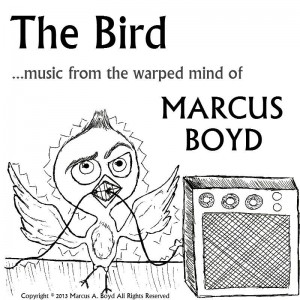 It is always exciting find local talent with a national future. I found that in Marcus Boyd. The Richlands, Va., resident recently released his debut CD, titled The Bird. In addition to singing all of the songs on this CD, Marcus also wrote all 11 songs, and produced the album.
It is always exciting find local talent with a national future. I found that in Marcus Boyd. The Richlands, Va., resident recently released his debut CD, titled The Bird. In addition to singing all of the songs on this CD, Marcus also wrote all 11 songs, and produced the album.
Marcus started playing guitar when he was 8 years old. While growing up in Virginia, he played and sang at church. In addition to guitar, he plays banjo, piano, mandolin and bass. Over the years, he found himself playing just about every kind of music. While his favorite has remained country, he also plays bluegrass, gospel, and even a little rock and classical. The songs on his album prove that country is the right genre for him.
The CD cover shows us that Marcus has a great sense of humor. The cover art says "The Bird...music from the warped mind of Marcus Boyd". I'm not sure where that came from, since the music doesn't really reflect that. I asked him why he chose The Bird for the album title, and he said, "I named this CD after the song on track six. Really, I could have named it after a number of songs on the CD, but I chose The Bird because it’s a fun song. I write mostly serious songs about all facets of life, and there’s nothing really that I wouldn’t touch. I wanted to keep some “fun” in the album, though. I am not one to take myself too seriously, and I get requests to play this song when I play live. So, I went with it when naming the album”.
The 11 songs you are going to hear are, Gonna Love You, I Gotta Go, Real Man, Leavin’ Virginia, Ain’t Met Her Yet, The Bird, Tuesday Sunset, Pucker UP, Girlfriends and Ex Wives, Little Church Girl and End of Our Song. Every song is country. Every song is well-written, and it goes without saying that Marcus did a great job singing every song, too. He has the kind of voice that you could fall asleep to, but at the same time, he is such a good entertainer, that you wouldn’t want to sleep through one of his performances.
Somehow, Marcus Boyd manages to make country music sound the way it did 50 years ago, and still makes it sound like we should be hearing it on country radio today. He lists his influences as Gary Allan, Tom Petty, Garth Brooks, Vince Gill, Leo Kottke, Counting Crows – I hear those influences in his music, but I hear some that go back a lot farther, too.
I never review a CD without picking a favorite song – this time, I can’t pick just one. My absolute favorite is “I Gotta Go”. ‘….It’s never quite what it seems, you spend your life chasing dreams, but I gotta go; I can’t let my life pass me by, you gotta know, I’ve begged, I’ve pleaded, I’ve tried; I’m not one to say I told you so, but I gotta go….’ Those are a few of the lyrics, now wait until you hear this melody. If you like a ballad, sung from the heart – this is your ballad.
“Gonna Love You” is another one of my favorites. It’s a a mid-tempo song, with great lyrics. If Marcus wasn’t a singer/songwriter, I think he would have made a great storyteller. But, I suppose that’s what he is doing through his music. And, he does it well. I am sure that if I were in position to select tunes ready for the radio, “Tuesday Sunset” and “Pucker Up” would be on my playlist.
While they can’t all be favorites, I will say there is not one song on this entire album that isn’t good. “Girlfriends and Ex Wives” should be getting played in every honky tonk in the country. I can just hear the entire bar singing along to that one. Then again, I think a lot of the songs Marcus sings would have that same affect on the people listening. They would want to sing along. Marcus produced this album, and he did a great job with it. It is an album I will play a lot, and I think everyone who buys a copy will be playing it a lot, too. The album is available on iTunes.
Marcus plays a lot of shows in Northeast Tennessee and Southwest Virginia. To keep up with his show schedule, please visit marcusboydmusic.com. You can also follow him on Twitter @MarcusBoydMusic. Remember, for all the latest country music news and reviews head over to countryschatter.com, and follow us on Twitter @countryschatter.
Music Charts Magazine® Country music CD Review of Marcus Boyd - The Bird - by Donna Rea /of the website we all know and love: www.CountrysChatter.com
About Fred's Country program:
Le program Fred's Country: La musique Country de Tradition avec Frederic (Fred) Moreau. Le program Fred's Country est diffusé sur 65 fréquences FM, 54 radios ou webradios.
Radio Show Host: Fred Moreau
Program Fred's Country w23-2014 - 6 Juin 2014 à 15:00 - June 6th, 2014
Music Charts Magazine is proud to be friends with Mr. Moreau and glad to now be one of the many to host Program Fred's Country. ( French/English)
 Music Charts Magazine® Presents - "NEW DISCOVERY" - "Taylor Faith"- for the month of June 2014.
Music Charts Magazine® Presents - "NEW DISCOVERY" - "Taylor Faith"- for the month of June 2014.
Looking for some "New" music to add to your player and can't find anything that blows you away?
Check out this Music Charts Magazine® "NEW DISCOVERY" Interview with "Taylor Faith" and be prepared to be excited knowing there is still 100% awesome music out there that you still have not heard.
After you listen to this great radio interview pasted below of "Taylor Faith" we are sure you will be glad you found this "New Discovery" and Taylor's song "See What You Did" to add to your music playlist.
Taking inspiration from artists such as Shania Twain, Miranda Lambert, and Sheryl Crow, Taylor has crafted a sound that blends twangy Country/Pop hooks with an edgier rock attitude. After some time spent majoring in commercial voice at Belmont University in Nashville, she relocated to New York City and formed her own band. Taylor Faith recently opened for Rascal Flatts and The Band Perry for their New York stop on the “Live and Loud 2013 Tour”
For more information on Brittany Marie visit -
Radio interested in how to obtain this music please contact us on our contact page and we will be glad to get it to your radio station for radio play. Many thanks to those of you who have already played it.
To find out more about Brittany Marie:
-
www.TaylorFaithMusic.com
-
https://www.facebook.com/TaylorFaithMusic
-
https://twitter.com/TaylorFaithBand
-
https://www.youtube.com/channel/UCP61KTGJ_NP7jgcQdPVU9vA
-
https://itunes.apple.com/us/
album/see-what-you-did-single/ id825820420
Music Charts Magazine® NEW DISCOVERY for the month of June 2014 - Music Charts Magazine® proudly presents "NEW DISCOVERY" for the month of June 2014 "Taylor Faith"- feature song - "See What You Did"
LISTEN to "NEW DISCOVERY" Interview with Taylor Faith - HERE:
Music Charts Magazine® Presents "New Discovery" Taylor Faith featuring the song "See What You Did" - Interview by Award winning DJ Big Al Weekley
Music Charts Magazine® Presents NEW DISCOVERY "Taylor Faith" - Interview by Big Al Weekley
Copyright © 2012 - 2014 Music Charts Magazine, INC - All Rights Reserved. Contents of this site including text and media may not be reproduced without prior written consent. Audio and video elements of this site are property of their respective owners and are used with permission.
